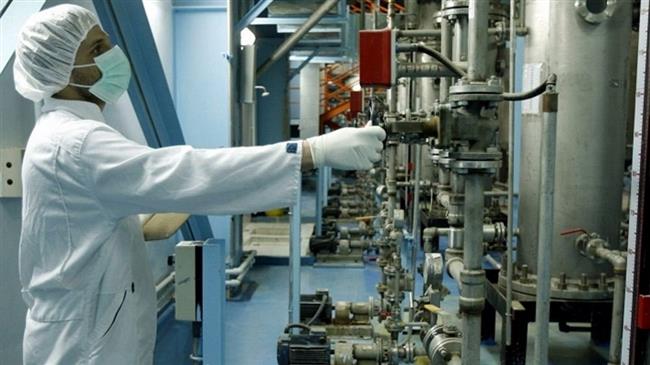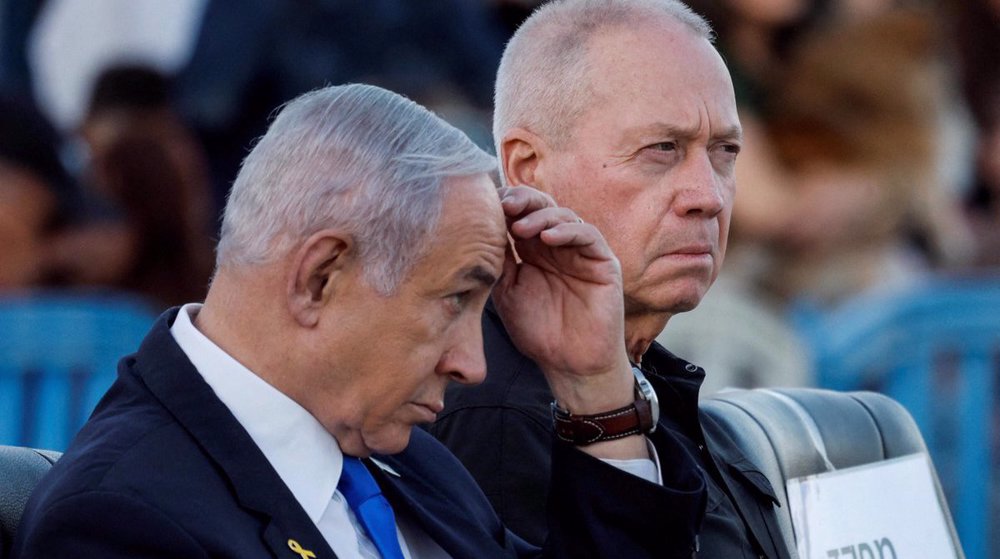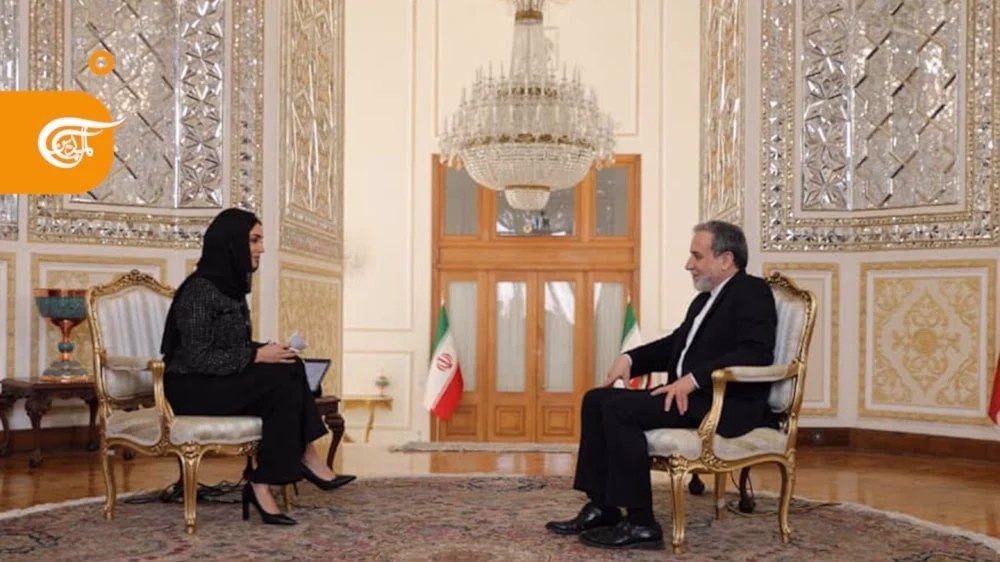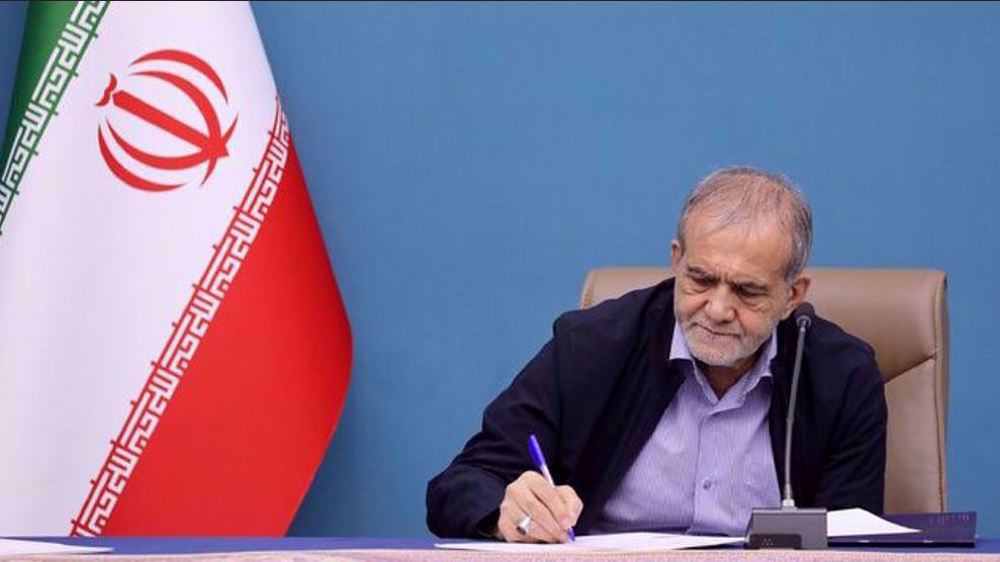EU, signatories react to Iran’s new step away from JCPOA
The European Union and signatories to a 2015 deal on the Iranian nuclear program have reacted to Tehran’s decision to take a fourth step in scaling back its commitments under the agreement in reciprocation for Washington’s withdrawal.
Iranian President Hassan Rouhani said on Tuesday that the country will start injecting uranium gas into centrifuges at the Fordow enrichment facility on Wednesday, in the fourth step Tehran is taking away from the multinational nuclear deal, officially known as the Joint Comprehensive Plan of Action (JCPOA).
In a speech broadcast live on TV, Rouhani said the Atomic Energy Organization of Iran (AEOI) will be ordered to begin the gas injection process at the Fordow nuclear facility — where 1,044 centrifuges are installed — under the supervision of the International Atomic Energy Agency (IAEA).
Later in the day, Iran’s Ambassador to the IAEA Kazem Gharib Abadi said the country has informed the UN nuclear agency about its decision to inject UF-6 gas into centrifuges at the Fordow nuclear facility.
Gharib Abadi added that in a letter to the IAEA that Iran requested the presence of the agency’s inspectors at the facility on Wednesday to supervise the process.
A day earlier, Tehran had officially started injecting gas into advanced IR-6 centrifuges at Natanz Nuclear Facility.
EU ‘concerned’ by Iran’s announcement
The European Union on Tuesday expressed its concern over Iran’s new commitment reductions, warning that it is getting harder to save the nuclear accord, whose fate remains in doubt since Washington withdrew from it and re-imposed tough economic sanctions against Tehran.
EU spokeswoman Maja Kocijancic said it was becoming “increasingly difficult” to preserve the JCPOA, adding the bloc — which chaired the negotiations in the lead-up to the agreement— remained committed to the document, but it depended on “full compliance” from Iran.
“We are concerned by President Rouhani’s announcement today to further reduce Iran's commitments under the JCPOA,” Kocijancic told reporters.
She added, “We urge Iran to reverse all activities that are inconsistent with its commitments under the JCPOA and to refrain from any further measures that would undermine the preservation and full implementation of the nuclear deal.”
In response to Washington’s withdrawal, Tehran has so far rowed back on its nuclear commitments three times in compliance with Articles 26 and 36 of the JCPOA, stressing that its retaliatory measures will be reversible as soon as Europe finds practical ways to shield the mutual trade from the US sanctions.
Tehran complains that the three European signatories to the nuclear accord— France, Britain and Germany – have failed to take practical strides to compensate for the US’s absence.
Russia ‘understands Iran’s concerns over bans’
The Kremlin also said that it was concerned by Iran’s reciprocal measures, but emphasized that Russia would like the nuclear deal to remain in place.
Russian President Vladimir Putin’s spokesman Dmitry Peskov said Moscow is “monitoring the development of the situation with concern.”
“The dismantling of the Joint Comprehensive Plan of Action does not bode well, of course,” he said. “We support the preservation of this deal.”
He emphasized that Moscow understood Tehran’s concerns over the “unprecedented and illegal sanctions” against the country.
France calls on Iran to reverse enrichment resumption decision
France, in turn, urged Iran to reverse its decision to resume uranium enrichment, saying the move would be a breach of the JCPOA.
“The announcements by Iran... go against the Vienna agreement,” the French foreign ministry said in a statement.
“We urge Iran to go back on its decisions which contradict the accord,” it added.
The ministry said that it was “deeply worried” by Iran’s latest steps and would await reports from the UN nuclear agency.
It reaffirmed France’s commitment to the nuclear deal and called on Iran to adhere to its obligations and fully cooperate with the IAEA.
“France remains entirely engaged to work for a de-escalation of tensions. A return to full compliance with the accord is one of the key objectives of this process,” the statement said.
Read more:
VIDEO | Iran's president urges Pope to help end Israel's onslaught in Gaza
Iran's senior legal official: ICC arrest warrants for Netanyahu ‘great victory'
Nov. 21: ‘Axis of Resistance’ operations against Israeli occupation
VIDEO | Israeli forces storm West Bank’s Jenin again, target civilians
Iran activates advanced centrifuges after IAEA's 'unjust' resolution
VIDEO | Press TV's news headlines
Iran FM: Response to Israeli aggression 'inevitable'
VIDEO | Iran eases the rules for exporting hand-woven carpets











 This makes it easy to access the Press TV website
This makes it easy to access the Press TV website